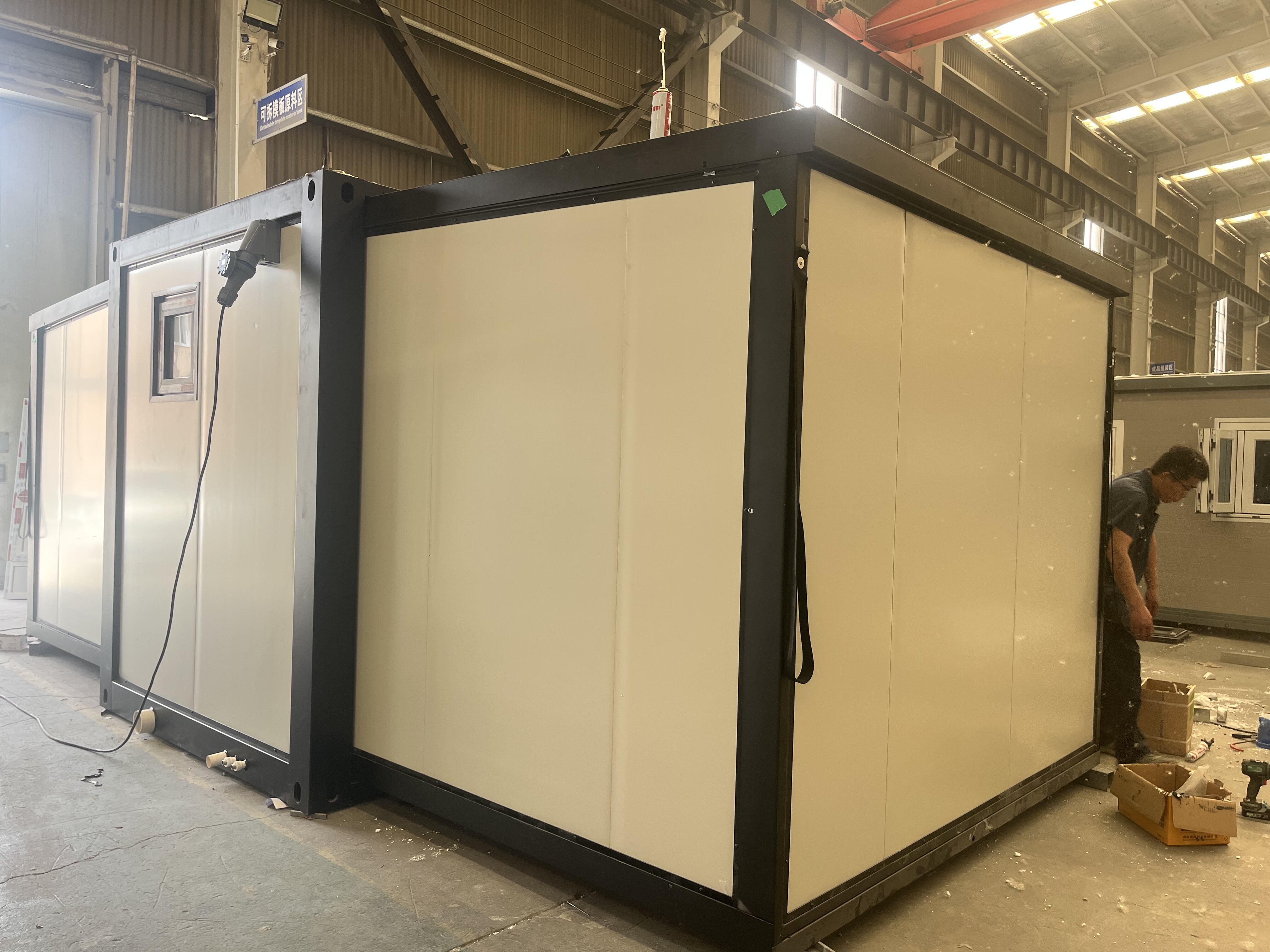In a world where the housing crunch is intensifying by the day, the search for innovative and accessible housing solutions has reached a fever pitch. Amid this backdrop, foldable houses have emerged as a revolutionary concept, promising to reshape the landscape of affordable housing. As we explore the website https://www.qgbuilding.com/, it becomes evident that these foldable abodes, with their unique blend of smart space utilization, environmental consciousness, and rapid assembly, are not just a fleeting trend but a viable answer to the global housing conundrum.
The Urgent Need for Affordable Housing
The global population is on an unprecedented growth spurt, with a significant portion migrating to urban centers in search of better opportunities. This mass exodus has led to a staggering increase in housing demand, far outpacing the supply in many cities. Traditional housing models, burdened by high construction costs, long lead times, and complex regulatory processes, are ill - equipped to meet this surging need. The result? Skyrocketing rents, unaffordable property prices, and a growing number of people being priced out of the housing market. This housing crisis is not only a social issue but also an economic bottleneck, hindering urban development and social mobility.
The Basics of Foldable House Design
Foldable houses, at their core, draw inspiration from modular and prefabricated construction principles. However, they take this concept a step further with their ingenious folding mechanisms. Each component of these houses is designed to be flat - packed, allowing for easy transportation. Whether it's a cramped urban lot, a remote rural campsite, or a disaster - stricken area in need of immediate shelter, the parts of a foldable house can be swiftly delivered. Once on - site, the assembly process is remarkably simple. Construction crews merely need to unfold and hinge a few panels, and in a matter of hours or, at most, overnight, a fully - formed shelter stands ready. This speed of construction is a game - changer, reducing labor costs significantly. For developers, it means quicker project turnarounds and higher returns on investment. For buyers, it translates to a more budget - friendly housing option, as they are not paying for extended construction periods.
Sustainability: A Green Stamp on Foldable Houses
In an era where environmental concerns are at the forefront of global discussions, foldable houses stand out as a sustainable housing alternative. Many models are crafted using eco - friendly materials. For instance, recycled steel might be used for the frame, reducing the demand for virgin materials. The use of bamboo or reclaimed wood for interior finishes not only adds a touch of natural warmth but also minimizes the environmental impact.
Energy - smart technologies are also integral to foldable house design. Built - in solar panels are a common feature, enabling homeowners to harness the power of the sun and significantly cut down on electricity bills. Additionally, the compact nature of these houses means they require less land. In crowded cities where land is a precious and expensive commodity, this is a major advantage. By minimizing land use, foldable houses contribute to more sustainable urban planning, reducing urban sprawl and preserving green spaces. This eco - friendly approach not only appeals to environmentally conscious buyers but also aligns with the global push to combat climate change.
Design Flexibility: Tailoring Homes to Needs
The design flexibility of foldable houses is one of their most appealing features. Owners have the freedom to customize the layout according to their specific requirements. For a single person, a compact, one - room foldable house with a combined living, sleeping, and cooking area might be sufficient. A young family could opt for a design with multiple rooms, perhaps a separate bedroom for the children and a larger living space. Shared living arrangements can also be easily accommodated, with modular designs allowing for the creation of communal areas and private sleeping quarters.
This adaptability makes foldable houses suitable for a wide range of demographics. Young workers, often on a tight budget and in need of flexible housing options as they move between jobs or cities, find foldable houses to be an ideal choice. Retirees looking to downsize without sacrificing comfort can also appreciate the simplicity and customization possibilities. Moreover, the ability to offer different shapes and sizes means that developers can target different market segments, keeping costs down while still providing a diverse range of housing options.
Real - World Examples of Foldable House Success
There are already several real - world examples that demonstrate the potential of foldable houses. In some coastal regions prone to natural disasters like hurricanes, foldable houses have been used as temporary shelters. Their quick assembly time means that affected communities can be provided with safe housing in a matter of days. These shelters are not only functional but also designed to withstand harsh weather conditions, with reinforced frames and weather - resistant materials.
In urban areas, some forward - thinking developers have started using foldable houses to create affordable housing complexes. For example, in a city where land is scarce and traditional housing construction is prohibitively expensive, a developer might erect a series of foldable houses on a small plot. These houses can be arranged in an innovative way, creating communal spaces such as small parks or shared laundry facilities. The success of such projects has not only provided much - needed affordable housing but has also inspired other cities to explore similar solutions.
The Future of Foldable Houses in the Housing Market
As the demand for affordable housing continues to rise, foldable houses are well - positioned to play a pivotal role in the future of the housing market. Their ability to offer low - cost, sustainable, and flexible housing solutions makes them an attractive option for developers, city planners, and investors alike. With advancements in technology, we can expect to see even more innovative designs in the coming years. For instance, improvements in folding mechanisms might make assembly even quicker and more efficient. Newer, more durable, and eco - friendlier materials could be developed specifically for foldable house construction.
If foldable houses are adopted on a larger scale, they have the potential to transform the housing market. They could help close the gap between housing supply and demand, making safe and affordable shelter a reality for countless people around the world. In conclusion, foldable houses are not just a novel idea; they are a glimpse into the future of affordable housing, offering a practical and sustainable solution to one of the most pressing global challenges.





